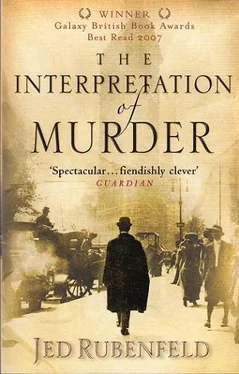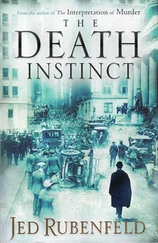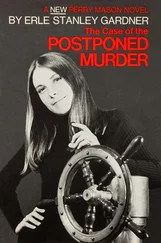Jed Rubenfeld - The Interpretation of Murder
Здесь есть возможность читать онлайн «Jed Rubenfeld - The Interpretation of Murder» весь текст электронной книги совершенно бесплатно (целиком полную версию без сокращений). В некоторых случаях можно слушать аудио, скачать через торрент в формате fb2 и присутствует краткое содержание. Жанр: Исторические приключения, на английском языке. Описание произведения, (предисловие) а так же отзывы посетителей доступны на портале библиотеки ЛибКат.
- Название:The Interpretation of Murder
- Автор:
- Жанр:
- Год:неизвестен
- ISBN:нет данных
- Рейтинг книги:5 / 5. Голосов: 1
-
Избранное:Добавить в избранное
- Отзывы:
-
Ваша оценка:
- 100
- 1
- 2
- 3
- 4
- 5
The Interpretation of Murder: краткое содержание, описание и аннотация
Предлагаем к чтению аннотацию, описание, краткое содержание или предисловие (зависит от того, что написал сам автор книги «The Interpretation of Murder»). Если вы не нашли необходимую информацию о книге — напишите в комментариях, мы постараемся отыскать её.
The Interpretation of Murder — читать онлайн бесплатно полную книгу (весь текст) целиком
Ниже представлен текст книги, разбитый по страницам. Система сохранения места последней прочитанной страницы, позволяет с удобством читать онлайн бесплатно книгу «The Interpretation of Murder», без необходимости каждый раз заново искать на чём Вы остановились. Поставьте закладку, и сможете в любой момент перейти на страницу, на которой закончили чтение.
Интервал:
Закладка:
A minute later, after a quick exchange with the reception clerk, Littlemore hustled back outside toward the same young man, who had not moved an inch. Hands clasped behind his back, he was staring at the receding carriage with such ferocious concentration that Littlemore thought there might be something wrong with him.
'You're Dr Younger, aren't you?' asked the detective. There was no reply. 'You okay, pal?'
'Excuse me?' replied the young gentleman.
'You're Younger, right?'
'Unfortunately.'
'I'm Detective Littlemore. The mayor sent me. Was that Miss Acton in the cab?' The detective could see that his interlocutor was not listening.
'I beg your pardon,' replied Younger. 'Who did you say you were?'
Littlemore identified himself again. He explained that Miss Acton's assailant had murdered a girl last Sunday night, but that the police still had no witnesses. 'Has the Miss remembered anything, Doc?'
Younger shook his head. 'Miss Acton has her voice back, but still no memory of the incident.'
'The whole thing seems pretty weird to me,' said the detective. 'Do people lose their memory a lot?'
'No,' Younger answered, 'but it does happen, especially after episodes like the one Miss Acton went through.'
'Hey, they're coming back.'
It was so: Miss Acton's carriage had turned around at the end of the block and was drawing near the hotel once again. As it pulled up, Miss Acton explained to Younger that Mrs Biggs had forgotten to return their room key to the clerk.
'Give it to me,' said Younger, extending his hand. 'I'll take it in for you.'
'Thank you, but I am quite able,' replied Miss Acton, hopping out of the cab unaided and sweeping past Younger without a glance in his direction. Younger showed nothing, but Littlemore knew a feminine rebuff when he saw one, and he sympathized with the doctor. Then a different thought occurred to him.
'Say, Doc,' he said, 'do you let Miss Acton go around the hotel like that — by herself, I mean?'
'I have little say in the matter, Detective. None, actually. But no, I think she's been with her servant or the police at almost every moment until now. Why? Is there any danger?'
'Shouldn't be,' said Littlemore. Mr Hugel had told him that the murderer did not know Miss Acton's location. Still, the detective was uncomfortable. The whole case was out of whack: a dead girl nobody knew anything about, people losing their memory, Chinamen running away, bodies disappearing from the morgue. 'Can't hurt to have a look around, though.'
The detective reentered the hotel, Younger beside him. Littlemore lit a cigarette as they watched the diminutive Miss Acton cross the colonnaded, circular lobby. A man returning his room key would simply have dropped it on the desk and left, but Miss Acton stood patiently at the counter, waiting to be helped. The place was crowded with travelers, families, and businessmen. Half the men there, the detective noticed, could conceivably have met the coroner's description.
One man, however, drew Littlemore's attention. He was waiting for an elevator: tall, black-haired, wearing glasses, a newspaper in his hands. Littlemore didn't have a good angle on his face, but there was something vaguely foreign in the cut of his suit. It was the newspaper that attracted the detective's attention. The man held it slightly higher than was normal. Was he trying to cover his face? Miss Acton had returned her key; she was now walking back. The man threw a quick glance in her direction — or was it toward the detective himself? — and then buried his head in the paper again. An elevator opened; the man went in, by himself.
Miss Acton did not acknowledge the presence of the doctor or the detective as she passed them on her way out. Nevertheless, Younger followed her outside, seeing her back to her carriage.
Littlemore stayed behind. It was nothing, he told himself. Nearly every man in the lobby had looked up at Miss Acton as she walked unaccompanied across the marble floor. All the same, Littlemore kept his eye on the arrow above the elevator into which the man had stepped. The arrow moved slowly, jerking up toward the higher numbers. Littlemore did not, however, see the arrow's final resting place. It was still moving when he heard a piercing cry outside.
The cry was not human. It was the shrill neighing of a horse in pain. The horse in question belonged to a carriage that had just emerged from a construction site on Forty- second Street, where the steel skeleton of a new nine-story commercial building was being raised. The man driving this carriage was superbly attired, with a top hat and a fine cane across his knees. It was Mr George Banwell.
In 1909, the horse was still doing battle with the automobile on every major avenue of New York City. In fact, the battle was already lost. The jerking, honking motorcars were faster and more nimble than a buggy; more than this, the automobile put an end to pollution — a term referring at that time to horse manure, which by midday fouled the air and made the busier thoroughfares almost impassable. Although George Banwell liked his motorcars as much as the next gentleman, he was at heart a horseman. He had grown up with the horse and was not ready to give it up. In fact he insisted on driving his own carriage, making his coachman sit awkwardly beside him.
Banwell had spent most of the morning at his Canal Street site, where he was supervising a vastly larger project. At eleven-thirty, he had driven uptown to Forty-second Street between Fifth and Madison Avenues, less than half a block, from the Hotel Manhattan. Having completed a quick inspection of his men's work there, Banwell was now making for the hotel to meet the mayor. But a moment after taking the reins, he had given them a fierce and abrupt yank, driving the bit into the unfortunate horse's mouth, causing her to halt and cry out. This cry had no effect on Banwell. He seemed not even to hear it. Staring transfixed at a point less than a block ahead of him, he kept the bit digging ever deeper into his horse's jaw, to the appalled dismay of his coachman.
The horse threw her head from side to side, trying in vain to loosen the cutting bit. Finally the creature reared up on her hind legs and let out the extraordinary, anguished cry heard by Littlemore and everyone else up and down the street. She returned to earth but immediately reared again, this time even more wildly, and the entire carriage began to topple. Banwell and his coachman spilled out like sailors from a capsized boat. The carriage tumbled to the ground with an enormous clatter, dragging the horse down with it.
The coachman was first to his feet. He tried to help his master, but Banwell pushed him away violently, brushing the dirt from his knees and elbows. A crowd had gathered about them. Impatient motorists were already blowing their horns. The spell on Banwell was apparently broken. He was not the kind of man who tolerated being thrown by a horse; to be thrown from a carriage was unthinkable. His eyes were furious — at the motorists, at the gawking crowd, and above all at the confused, prostrate horse, which was struggling unsuccessfully to right herself. 'My gun,' he said to his coachman coldly. 'Get me my gun.'
'You can't destroy her, sir,' objected the coachman, who was crouching by the side of the horse, extricating her hoofs from a brace of twisted ropes. 'Nothing's broken. She's just tangled up. There she is. There you are' — this he said to the horse, as he helped her upright — 'it wasn't your fault.'
Doubtless the coachman meant well, but he could not have chosen more ill-favored words. 'Not her fault, eh?' said Banwell. 'She rears like an unbroken jade, and it's not her fault?' He seized the bit and roughly twisted the horse's neck, looking her in the eye. 'I can see,' he said to the coachman, his voice still cold, 'you never taught her to keep her head down. Well, I will.'
Читать дальшеИнтервал:
Закладка:
Похожие книги на «The Interpretation of Murder»
Представляем Вашему вниманию похожие книги на «The Interpretation of Murder» списком для выбора. Мы отобрали схожую по названию и смыслу литературу в надежде предоставить читателям больше вариантов отыскать новые, интересные, ещё непрочитанные произведения.
Обсуждение, отзывы о книге «The Interpretation of Murder» и просто собственные мнения читателей. Оставьте ваши комментарии, напишите, что Вы думаете о произведении, его смысле или главных героях. Укажите что конкретно понравилось, а что нет, и почему Вы так считаете.












